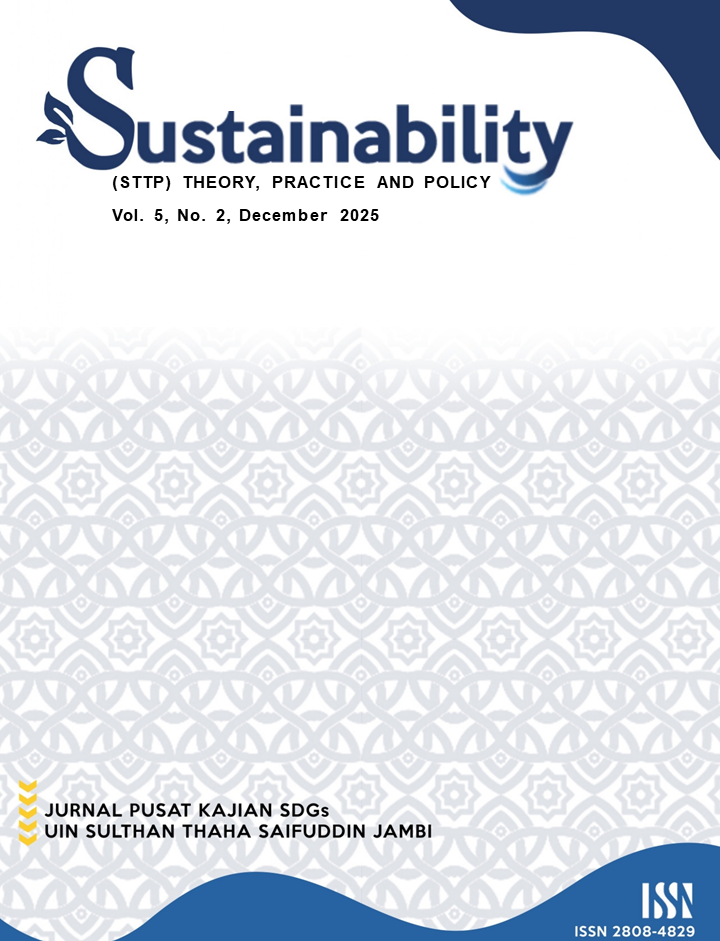Current Issue

This issue has been available online since December 1, 2025, as the regular issue for December 2025. All articles in this issue (8 original research articles) were authored or co-authored by 37 scholars from various countries. A total of 30 authors are from Indonesia, representing institutions such as Mulawarman University, Universitas Pendidikan Indonesia, Institut Teknologi Bandung, Universitas Brawijaya, Universitas Negeri Padang, University of Bengkulu, Universitas Diponegoro, and State Senior High School of Bangsa Utama. Other contributors include 1 author from Sweden (Lund University), 1 author from Uganda (Uganda Christian University), 1 author from the United Kingdom (University of Southampton), 1 author from Yemen (Lahej University), 1 author from Tanzania (Tongyi Environmental service Co.Ltd), 1 author from Hungaria (Eötvös Loránd University), 2 author from Fiji (Fiji National University), 1 author from United States of America (University of Southern California), 1 author from India (Jawaharlal Nehru University), and 1 author from Canada (University of Toronto).
Articles
Sustainability (STPP) Theory, Practice and Policy is an international and cross-disciplinary scholarly, open access journal of theory, practice and policy on social, economy and environmental sustainability of society, which provides an advanced forum for studies related to sustainability and sustainable development (e-ISSN: 2808-4829). Publication in this journal is free of charge, there are no Article Processing Charges (APCs). Published two times a year in June and December. Subject areas include, but are not limited to the following fields;
1. Regional Development and Sustainable Development Policies. Studies on how policies at the local, national, and international levels are implemented and their impact on spatial development, spatial structure, and the sustainability of a region.
2. Political Geography and Public Policy. Spatial analysis of political processes, geopolitics, and the spatial implications of public policies that affect territorial organization and interregional relations.
3. Institutions and Territorial Governance. Studies on the role of strong institutions in territorial governance, the equitable management of natural resources, and the achievement of sustainable development.
4. Education for Sustainable Development. Research on the strategic role of education, particularly geography education, in instilling the awareness, knowledge, and practices of sustainable development within society.
5. Human Geography. In-depth research covering human-environment interactions, including population dynamics (demography), cultural geography, economic geography, and social geography.
6. Social Innovation. Analysis of social innovation from a spatial perspective, including its patterns of diffusion (spatial diffusion) and its impact in transforming local and regional communities.
7. Smart City Initiatives. Studies on the planning and development of smart cities with an emphasis on spatial efficiency, sustainable mobility, urban environmental management, and community participation.
8. Smart Village Movement. Focus on the transformation of rural areas through the adoption of technology and innovation to improve quality of life, diversify local economies, and ensure the sustainability of village resources.
9. Climate Change. Analysis of the impacts of climate change on physical systems (such as hydrology and geomorphology) and socio-economic systems, as well as the evaluation of area-based adaptation and mitigation strategies.
10. Social Entrepreneurship. Studies on the role of social entrepreneurship in addressing social and environmental problems from a geographical perspective, with a focus on local and regional scales.
11. Sustainable Economic Activities. Research on sustainable economic practices, such as the circular economy, ecotourism, and sustainable agriculture, and the analysis of their spatial distribution.
12. Disaster Management. Studies on disaster mitigation and management from a geographical perspective, including risk analysis, spatial vulnerability mapping, and spatial planning for disaster risk reduction.
13. Tourism Management and Resilience. Analysis of sustainable tourism destination management and the building of tourism sector resilience to economic, social, and environmental shocks.
14. Poverty. Spatial analysis of poverty, including the identification and mapping of poverty pockets, and the geographical factors influencing its distribution and persistence.
15. Gender and Inequality. Studies on the spatial dimensions of gender inequality and other forms of social inequality, particularly in the context of access to resources, services, and public space.













